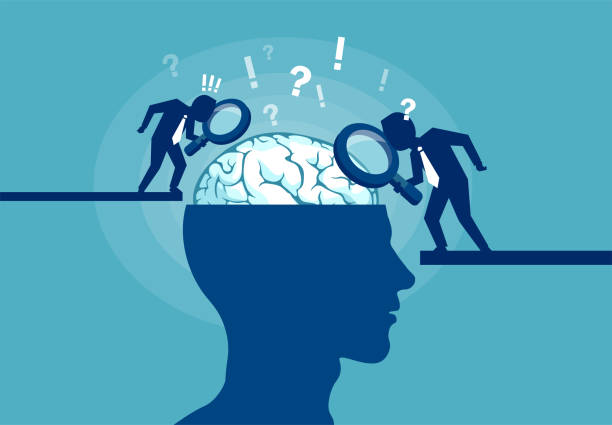Learning disabilities are disorders that impact an individual's ability to acquire, process, and apply information.
These neurological learning disabilities association can affect reading, writing, mathematics, listening, and language processing.
Individuals with learning disabilities often have average or above-average intelligence but face challenges in specific learning areas.
Prevalence of Learning Disabilities
Specific learning disorders are common, affecting 5-10% of the population. In a classroom of 30 students, 1-3 students likely have a learning disability.
These symptoms of intellectual and developmental disabilities occur in individuals from all backgrounds, regardless of age, race, or socioeconomic status.
Importance of understanding different types of learning disabilities
Understanding the different types of learning disabilities is crucial for providing appropriate support and interventions. Each type presents unique challenges and requires specific strategies.
Recognizing specific learning disabilities helps educators, parents, and professionals identify individual needs and develop targeted interventions.
Increased awareness and understanding of nonverbal learning disabilities can reduce stigma and promote a more inclusive learning environment.

7 Types of Learning Disabilities
1. Dyslexia
Dyslexia is a learning disability that affects reading skills. Individuals with dyslexia have difficulty recognizing words, decoding text, and spelling.
They may struggle with other language skills such as phonological awareness, which is the ability to identify and manipulate sounds in words and spoken language.
Dyslexia is not related to intelligence.
People with dyslexia may experience:
- Slow and labored reading
- Difficulty sounding out words
- Confusing similar-looking letters or words
- Omitting, adding, or substituting words while reading
- Poor reading comprehension, spelling, and writing skills
- Difficulty with written expression and organizing thoughts
Strategies and interventions for dyslexia include:
- Multisensory instruction engaging visual, auditory, and kinesthetic learning
- Systematic and explicit phonics instruction
- Accommodations like audiobooks and text-to-speech software assistive technology, such as word prediction and spell-check tools
- Individualized education plans (IEPs) or 504 plans outlining accommodations and support
- Collaboration between educators, parents, and specialists
With appropriate interventions and accommodations, individuals with dyslexia can develop effective reading and writing skills and excel in school performance.
2. Dyscalculia
Dyscalculia is a learning disability that affects mathematical abilities. Individuals with dyscalculia have difficulty understanding and working with numbers, math concepts, and problem-solving.
They may struggle with basic math skills such as arithmetic, recognizing patterns, and grasping abstract mathematical ideas. Dyscalculia is not related to intelligence and can occur independently or alongside other learning disabilities.
People with dyscalculia may experience:
- Difficulty understanding and remembering math concepts
- Trouble performing basic arithmetic (addition, subtraction, multiplication, division)
- Difficulty with number sense and estimating quantities
- Confusion with mathematical symbols and notation
- Difficulty with telling time, measuring, and handling money
- Trouble with mental math and problem-solving strategies
Strategies and interventions for dyscalculia include:
- Multisensory math instruction using manipulatives and visual aids
- Explicit instruction in mathematical language and vocabulary
- Breaking down complex problems into smaller, manageable steps
- Accommodations like calculator use, extra time on tests, and visual aids
- Assistive technology, such as educational math software and apps
- Individualized education plans (IEPs) or 504 plans outlining accommodations and support
- Collaboration between educators, parents, and specialists
With appropriate interventions special education and accommodations, individuals with dyscalculia can develop essential math skills and strategies to succeed in academic and real-world situations.
3. Dysgraphia
Dysgraphia is a learning disability that affects writing skills. Individuals with dysgraphia have difficulty with handwriting, spelling, and organizing written thoughts.
They may struggle with fine motor skills which makes writing laborious and challenging. Dysgraphia can occur independently or alongside other serious learning disorders or disabilities, such as dyslexia or Attention Deficit Hyperactivity Disorder (ADHD). Often, people with Dysgraphia have poor handwriting.
People with dysgraphia may experience:
- Illegible or inconsistent handwriting
- Difficulty with letter formation, spacing, and sizing
- Slow and laborious writing
- Pain or fatigue when writing
- Difficulty copying text or taking notes
- Poor spelling and grammar
- Trouble organizing thoughts and ideas in writing
- Difficulty expressing thoughts through writing
Strategies and interventions for dysgraphia include:
- Occupational therapy to improve fine motor skills and handwriting
- Multisensory handwriting instruction
- Accommodations like typed assignments, speech-to-text software, and extra time for writing tasks
- Assistive technology, such as word processors and graphic organizers
- Individualized education plan (IEP) or 504 plans outlining accommodations and support
- Collaboration between educators, parents, and specialists
With appropriate interventions special education services and accommodations, individuals with dysgraphia can improve their writing skills and effectively express their thoughts through written communication.
4. Auditory Processing Disorder (APD)
Auditory Processing Disorder (APD) is a learning disability that affects how the brain processes auditory information.
Individuals with APD have difficulty understanding and interpreting sounds, despite having normal hearing. They may struggle with distinguishing between similar sounds, filtering out background noise, and following verbal instructions.
APD can impact language development, communication, and academic performance in children with learning disabilities.
People with APD may experience:
- Difficulty understanding speech in noisy environments
- Trouble following verbal directions, especially multi-step instructions
- Difficulty with sound localization and distinguishing between similar sounds
- Struggles with auditory memory and recalling information heard
- Difficulty with phonological awareness and sound-letter associations
- Challenges with comprehending rapid or complex speech
- Difficulty with note-taking and following lectures
Strategies and interventions for APD
- Accommodations like preferential seating, visual aids, and written instructions
- Use of assistive technology, such as FM systems and noise-canceling headphones
- Auditory training exercises to improve listening skills and sound discrimination
- Multisensory instruction that incorporates visual and kinesthetic learning
- Individualized education plan (IEP) or 504 plan outlining accommodations and support
- Collaboration between educators, parents, audiologists, and speech-language pathologists
With appropriate interventions and accommodations, individuals with APD can develop effective listening and communication skills, leading to improved academic performance and social interactions.
5. Visual Processing Disorder
Visual Processing Disorder is a learning disability that affects how the brain interprets and processes visual information. Individuals with visual processing disorder have difficulty making sense of what they see, despite having normal vision.
They may struggle with recognizing patterns, distinguishing between similar objects, and understanding spatial relationships. Visual processing disorder can impact reading, writing, and other academic skills that rely on visual input.
People with visual processing disorder may experience:
- Difficulty with letter and number recognition
- Trouble with visual memory and recalling what was seen
- Difficulty with visual discrimination and distinguishing between similar objects
- Struggles with visual sequencing and ordering
- Difficulty with spatial relationships and understanding maps or graphs
- Challenges with visual-motor coordination and handwriting
- Difficulty with reading comprehension and tracking lines of text
Strategies and interventions for visual processing disorder include:
- Accommodations like large print materials highlighted text, and visual aids
- Use of assistive technology, such as text-to-speech software and digital organizers
- Visual perception training exercises to improve visual discrimination and memory
- Multisensory instruction that incorporates auditory and kinesthetic learning
- Individualized education plans (IEPs) or 504 plans outlining accommodations and support
- Collaboration between educators, parents, and vision specialists
With appropriate interventions and accommodations, individuals with visual processing disorder can develop effective strategies to process and interpret visual information, leading to improved academic performance mental health, and daily functioning.
6. Nonverbal Learning Disorder (NVLD)
Nonverbal Learning Disorder (NVLD) is a learning disability that affects an individual's ability to interpret and respond to nonverbal cues, such as body language, facial expressions, and social contexts.
People with NVLD often have strong verbal skills but struggle with visual-spatial processing, motor coordination, and social interaction. NVLD can impact academic performance, social relationships, and daily living skills.
People with NVLD may experience:
- Difficulty understanding and responding to nonverbal cues, reading body language
- Trouble with social perception and understanding social norms
- Difficulty with visual-spatial processing and navigation
- Struggles with fine and gross motor coordination
- Difficulty with problem-solving and adapting to new situations
- Challenges with organizational skills and time management
- Difficulty with math, particularly with spatial and abstract concepts
Strategies and interventions for NVLD Strategies and interventions for NVLD include:
- Social skills training and explicit instruction in nonverbal communication
- Accommodations like visual schedules, graphic organizers, and extra time for processing
- Occupational therapy to improve motor skills and visual-spatial processing
- Cognitive-behavioral therapy to develop coping strategies and manage anxiety
- Individualized education plans (IEPs) or 504 plans outlining accommodations and support
- Collaboration between educators, parents, therapists, and school counselors
With appropriate interventions and accommodations, individuals with NVLD can develop effective strategies to navigate social situations, improve visual-spatial processing, and achieve success in both academic and personal pursuits.
7. Language Processing Disorder
Language Processing Disorder is a learning disability that affects an individual's capacity to understand and express language.
People with language processing disorder have difficulty processing and making sense of spoken or written language, despite having normal hearing and vision.
They may struggle with following directions, and learning difficulties that include difficulty understanding complex sentences and expressing their thoughts and ideas coherently.
People with language processing disorder may experience:
- Difficulty understanding spoken or written instructions
- Trouble with following conversations and participating in discussions
- Difficulty with remembering and recalling information
- Struggles with organizing thoughts and expressing ideas clearly
- Difficulty understanding written text and reading comprehension
- Challenges with vocabulary acquisition and word retrieval
- Difficulty with grammar, syntax, and sentence structure
Strategies and interventions for language processing disorder:
- Language therapy with a speech-language pathologist
- Explicit instruction in language skills, such as vocabulary, grammar, and comprehension strategies
- Accommodations like simplified language, visual aids, and extra processing time
- Use of assistive technology, such as text-to-speech software and graphic organizers
- Individualized education plans (IEP) or 504 plan outlining accommodations and support
- Collaboration between educators, parents, and speech-language pathologists
With appropriate interventions and accommodations, individuals with language processing disorder can develop effective strategies to understand and express language, leading to improved communication skills and academic performance.
Signs and symptoms of learning disabilities and disorders
Learning disabilities can manifest differently from one child to another. Some children may struggle with reading and spelling, while others may excel in reading but have difficulty with math.
Some may have trouble understanding spoken language or expressing themselves verbally. Due to these variations, there is no single symptom or profile that definitively indicates a learning disorder.
However, certain warning signs are more common at different ages. Recognizing these signs can help identify learning disabilities early on, allowing parents and educators to take prompt action and provide the necessary support.
It's important to note that children without learning disabilities may occasionally experience some of these difficulties. Concern arises when there is a consistent unevenness in a child's ability to master specific skills.
Importance of early identification and intervention
Early identification and intervention are crucial for children with learning disabilities. Recognizing the signs and symptoms early allows educators, parents, and school psychologists to provide targeted support and accommodations. Efforts in early identification and early intervention help children overcome challenges and reach their full potential.
Early intervention can also prevent the development of secondary issues, such as low self-esteem, anxiety, and academic struggles.
Resources and support for individuals with learning disabilities and their families
Numerous resources and support systems are available for individuals with learning disabilities and their families, including:
- Educational support services and specialized instruction
- Accommodations and assistive technology
- Therapy and counseling services from school psychologists
- Advocacy organizations and support groups
- Online resources and educational materials
Educational support services can include specialized instruction tailored to the individual's learning needs, such as one-on-one tutoring or small-group instruction.
Accommodations might involve changes to the learning environment or teaching methods, such as extended time on tests or the use of assistive technology.
Therapy and counseling services can address any emotional or behavioral issues related to the learning disability, helping individuals develop coping strategies and build resilience. Advocacy organizations and support groups provide information, resources, and a sense of community for individuals and families navigating the challenges of learning disabilities.
Online resources and educational materials can offer additional support, such as instructional videos, interactive activities, and informational articles. These resources can help individuals with learning disabilities and their families stay informed and find new ways to support learning and development.
By accessing these resources and collaborating with educators, therapists, and other professionals, individuals with learning disabilities and their families can find the support they need to succeed academically, socially, and emotionally.
It's crucial to remember that learning disabilities do not define an individual's intelligence or potential. With the right interventions, accommodations, and support, individuals with learning disabilities can thrive and achieve their goals.
In conclusion, understanding the different types of learning disabilities, recognizing the signs and symptoms, and providing early identification and intervention are essential steps in supporting individuals with learning disabilities.
Free trial
Easily pronounces technical words in any field
.jpg)



